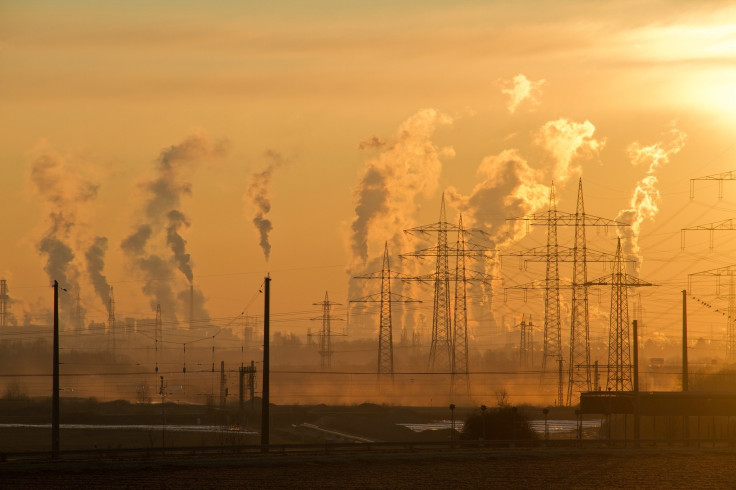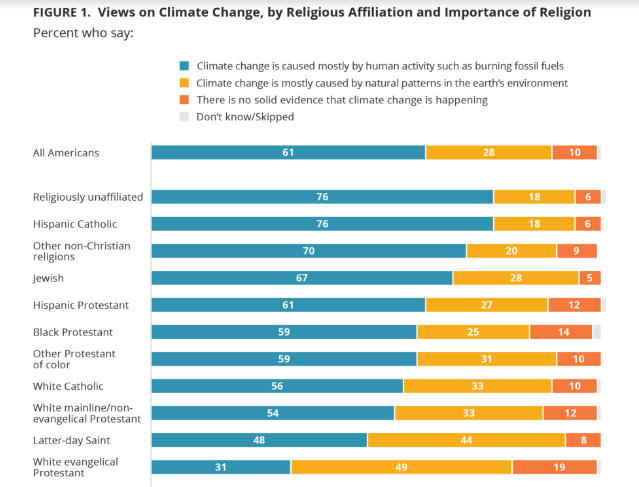
Latinos' religion influences their views over whether climate change is mostly caused by human activity.
According to a report by the Public Religion Research Institute, Hispanic Catholics in the U.S are the religious group with the largest share of people who believe this to be the case, along with those who claimed to be religiously unaffiliated, with 76% of respondents. Hispanic Protestants ranked 5th on the list, with 61% of respondents answering this way.
These figures mean that Latinos are among the demographics with the larger share of positive answers, considering there were 11 groups included in the report, which surveyed more than 5,000 adults between June 8 and 28. On the other side of the spectrum are White evangelical Protestant, with 31%.
Following the same argumentative line, Hispanic Catholics and Protestants are among the groups with the lower share of people saying that climate change is caused by "natural patterns of the environment." 18% of the former and 27% of the latter attributed the shifts to this explanation, and very few of them say there is no solid evidence of climate change: 6% of Hispanic Catholics and 12% of Hispanic Protestants answered affirmatively to this question.

Hispanic Americans, regardless of their religion, are also among the demographics that agree the most with the premise that climate change is being caused by human activities. Concretely, they ranked second with 73% of positive answers only behind Asian Americans and Pacific Islanders.
Political affiliation showed perhaps the clearest division: More than 80% of Democrats say climate change is caused by humans, compared to 64% of independents and 28% of Republicans.
There is practically no disagreement between scientists about the causes of climate change, and warnings are only growing as the temperatures get warmer and extreme climatic events increase. This was the warmest summer on record, 2023 is expected to be the hottest globally and for temperatures to increase even more next year.
And heat is not the only issue: scientists have also linked climate change to a larger number of climate phenomena such as El Niño y La Niña, which affect rain and temperature patterns in the oceans, and outright disasters such as forest fires and floodings, among others.
UN Secretary General Antonio Guterres has highlighted that countries are far behind when it comes to meeting their promises and commitments, saying there's a lack of support and cooperation to fulfill the climatic agenda.
He has also warned that there is too much willingness to "bet it all on illusions, unproven technologies and miraculous solutions," and that carbon emissions must be reduced 45% by 2030 if countries want to limit the global temperature increase to 1.5 degrees compared to pre-industrial levels.
© 2025 Latin Times. All rights reserved. Do not reproduce without permission.





